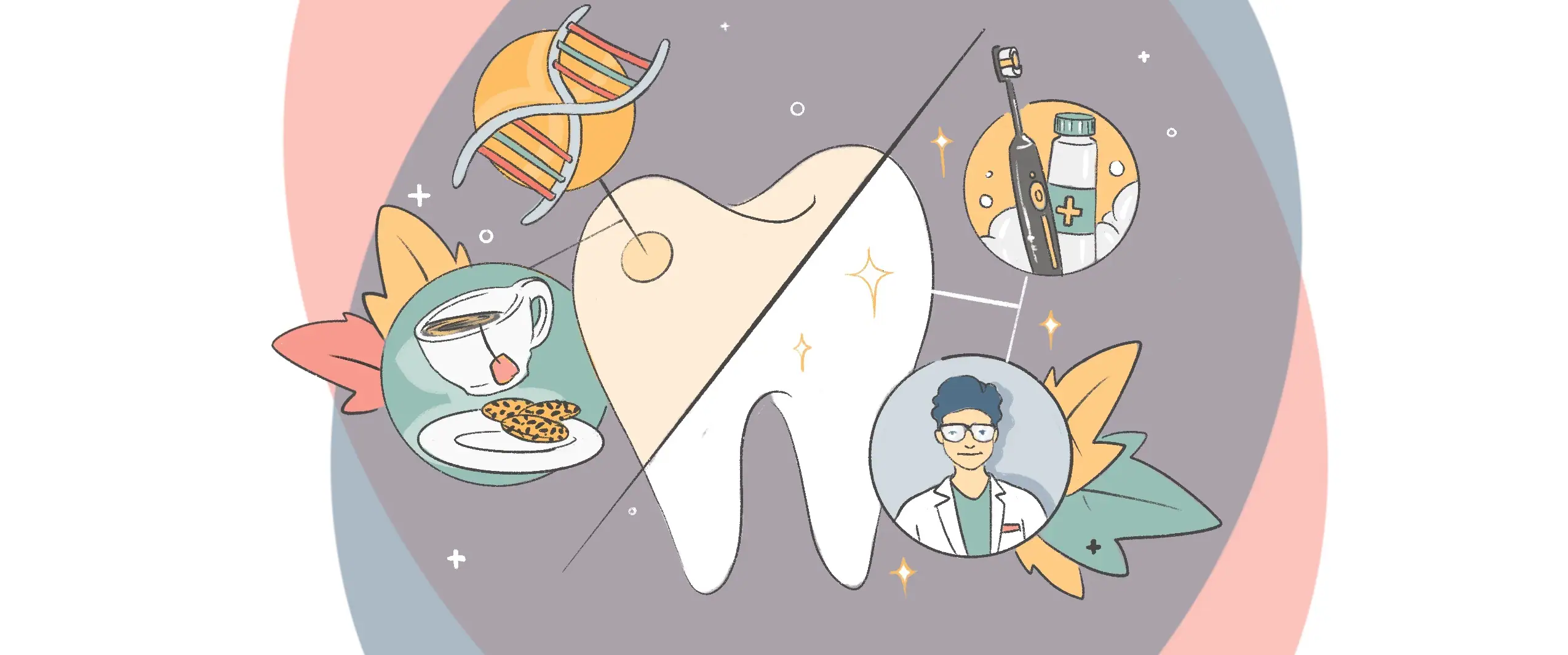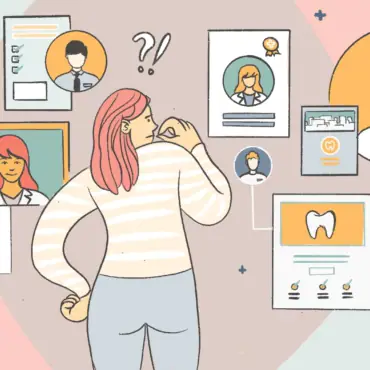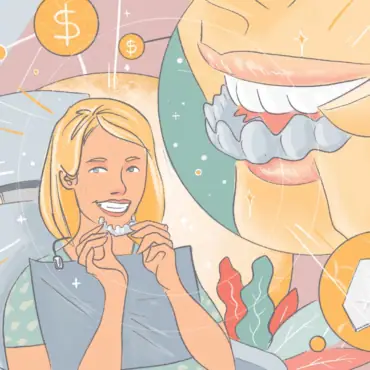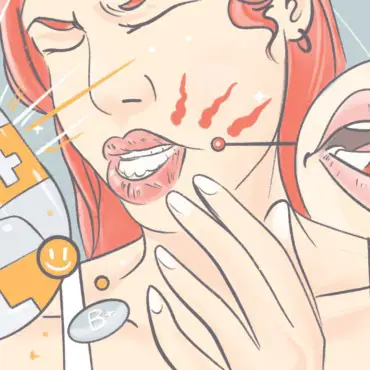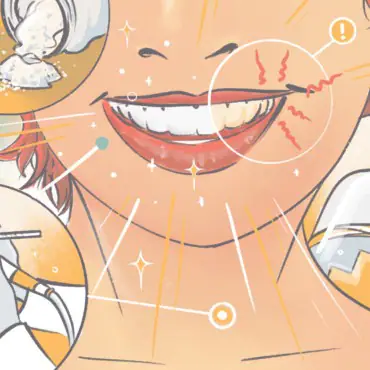Many people have yellowish teeth, even those with excellent dental hygiene. What’s more, yellow teeth aren’t necessarily a sign of anything bad. Depending on what’s causing your yellow teeth, they may still be perfectly healthy.
Yellow teeth can be a huge insecurity for many, and so it’s common to look for ways to whiten their discolored teeth.
Here you’ll learn about what causes yellow teeth, remedies you can try at home, and what your treatment options are. For a perfect smile, understand these yellow teeth causes and remedies.
Ask a nearby dentist about teeth whitening options.
Use Opencare to book a dental cleaning.
What causes yellow teeth?
There are a few things that can cause yellow teeth. Proper oral hygiene like brushing and flossing regularly and visiting the dentist are all a big help in staving off tooth discoloration. However, even if you follow all of your dentist’s instructions, you might still have yellow teeth because there is another underlying cause.
Let’s take a look at some common yellow teeth causes.
Food
Just as some foods can stain your clothing, they can also stain your teeth. Coffee and tea are common offenders and you’ll see that older lovers of these beverages will often sport yellowed teeth.
Other common offenders include red wine, dark sauces like soy sauce or balsamic vinegar, colas, and chocolate. Even some strongly-colored fruits and vegetables like beets, pomegranates, cherries, and blueberries can stain your teeth. However, this not an excuse to eat your beets —!
These are surface-levels stains that can be treated easily professionally, and even at home.
Smoking
Smoking is seriously bad for you, causing a whole list of health problems including cancer, diabetes, stroke, heart disease, and more. Not surprisingly, the negative effect of smoking on your oral health is no exception. If you smoke, you should kick the habit for good starting now, but seek help if you need it!.
Both the nicotine and tar in tobacco can cause stains on the outside of your teeth. However, all is not lost if you dream of having whiter teeth. All you have to do is stop smoking and start using a tooth whitening product. Smoking stains can be stubborn, but with patience and a steady oral healthcare regimen, you can eventually enjoy a whiter smile.
If you’re a regular smoker, consider seeing a dentist frequently. Dentists can spot complications from smoking before they turn into preventable diseases.
Illness
In addition to their own symptoms, some illnesses can cause discolored teeth. What’s more, some medical treatments like chemotherapy for head or neck cancers can also have a negative effect on the color of your teeth.
Medications
The medications you take for certain conditions such as asthma or high blood pressure can cause yellow teeth. Even antihistamines can be a guilty party.
At your next dentist appointment ask for help with yellowed teeth and be sure to tell your dentist about any medications, even over-the-counter ones, that you may be taking. This can help them narrow down the root cause of your yellow or brown teeth.
Trauma
Trauma to the tooth, such as being struck while suffering a sports injury, can also cause discoloration.
Fluoride
Yep, you can have too much of a good thing. Fluoride being one.
In small amounts, it can help strengthen your teeth and prevent cavities, but get too much and you’ll enjoy a dull, yellow smile instead.
Genetics
Some people just have yellowish teeth. Dentin, the inner layer of your teeth underneath the enamel, is naturally a yellow color. Some people have thinner tooth enamel or it’s more transparent, causing the yellowish color of the dentin to shine through. They may have perfectly strong, healthy teeth, but have been unlucky enough to inherit yellow-colored teeth in a society that’s obsessed with pearly whites.
What are the types of tooth discoloration (stains)?
There are two types of teeth stains — extrinsic and intrinsic.
Extrinsic stains are caused by external factors. For example, smoking or eating dark-colored foods can lead to stained teeth. These stains primarily affect the tooth enamel and while you might have to work hard to remove them, rest assured they can usually be removed.
Intrinsic stains are a bit trickier to deal with. These stains are caused by internal factors and affect the dentin, an inner layer of your tooth that lies below the enamel.
For instance, taking some medications or overexposure to fluoride (particularly as a child) can cause brown spots on your teeth. Adults aren’t safe either. Keep in mind that prescription-strength mouthwashes prescribed by dentists to treat gingivitis and other tooth problems often contain chlorhexidine–a compounds that can also discolor your teeth.
Due for a checkup?
Find a top rated dentist near you that takes your insurance.
Why are my teeth yellow even though I have good dental hygiene?
Because of the nature of yellow teeth, it is possible to maintain the strictest tooth-brushing regimen in the world and still end up with yellow or brown teeth.
Good oral hygiene can help stave off extrinsic stains by attacking them before they can fully form. However, intrinsic stains are harder to control. All the vigorous flossing and brushing you can muster won’t keep your teeth from discoloring due to a medication.
How can yellow teeth be prevented?
It is relatively simple to prevent yellow teeth. Maintain proper dental hygiene and avoid the other factors that can cause tooth staining. In other words:
- Don’t smoke or chew tobacco
- Limit red wine, coffee, tea, etc.
- Avoid taking medications that may affect your teeth, if you can
- Don’t overdo it with fluoride
- Don’t get a chronic disease like cancer or diabetes
- Don’t be born with the genetics that predisposes you to get yellow teeth
Unfortunately, you can’t control all of these factors, so do your best with the ones you can.
Can yellow teeth become white?
Depending on the root cause of your tooth discoloration, you may be able to enjoy pearly whites once more. For example, at-home or professional whitening can scrub away extrinsic stains relatively quickly.
Even discoloration from medications and the like can be removed when you use the proper technique. This is why consulting with a dentist can be helpful. First, they will work to discover the root cause of your yellow or stained teeth, and then they’ll recommend the best course of treatment.
If you’re “blessed” with genetically yellowish teeth, tooth whitening may not be as successful as you’d like, but there are still cosmetic dentistry options you can explore if all else fails. Use these teeth whitening remedies.
How do you whiten yellow teeth?
There are many methods for whitening yellow teeth. How effective they will be is dependent on what is causing the yellowing. It is important to be aware that some methods may erode your tooth enamel and should be avoided. Let’s look at a few common methods here.
At-home teeth whitening remedies
There are a few really effective teeth whitening remedies. When your teeth are yellowing due to food stains, brushing with an electric toothbrush can be an effective option. The vibration of the bristles is more effective at loosening plaque and the pellicle, or thick film, on your teeth that is helping to cause the stains. Double that with a whitening toothpaste with activated charcoal and you’ve got a pretty effective recipe for whitening. You might also try adding baking soda to your toothpaste for an extra whitening boost.
Though it might seem counterintuitive since turmeric turns foods yellow and can stain clothing, oil pulling with a mixture of coconut oil and turmeric may help. This concoction is effective at cutting down on the number of bacteria in your mouth which could be contributing to your tooth discoloration problem.
That is, if you can stand the taste.
There are a few other home remedy suggestions that you’ll find floating out there on the internet, but steer away from acidic methods like strawberries and orange peels. Cosmetically, they may make your teeth look whiter, but the acid is destroying your tooth enamel, which can further exacerbate the problem later on. Don’t be so obsessed with getting white teeth that you cause your teeth to age and yellow prematurely!
Teeth whitening treatment options
There are a few at-home tooth whitening options you can try as well. You can buy whitening strips or gels over-the-counter and apply these to your teeth as directed. These formulas usually contain peroxide and can be effective at removing stains within a few days.
If you need some extra whitening power, it’s time for a trip to your friendly neighborhood dentist! Professional tooth whitening involves bleaching your teeth at the dentist’s office. Depending on the severity of your stains, you may need to have a few treatments. Your dentist may also use special lights or lasers to enhance the effect. Keep in mind that most dental insurance doesn’t cover teeth whitening.
How to find a dentist
Don’t have a regular dentist? No problem! We are dedicated to helping people find the perfect dentist. With a large network of dentists all across North America, we can help you find a dentist in your area that will meet your oral health needs.
We firmly believe that healthy teeth and proper oral health are necessary for a happy, healthy life and we’re happy to help you reach that goal!
Due for a checkup?
Find a top rated dentist near you that takes your insurance.

